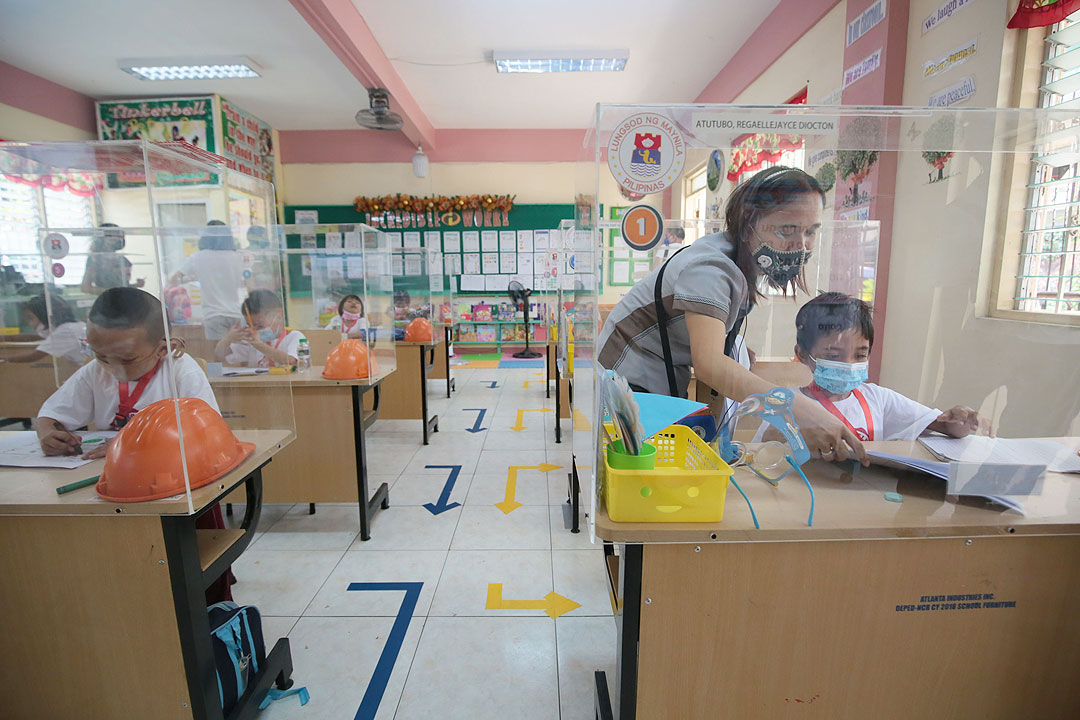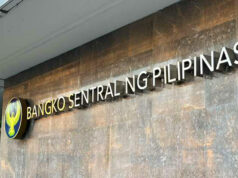Duterte signs EO on economic recovery

PRESIDENT Rodrigo R. Duterte signed an executive order which lays down a 10-point policy agenda aimed at accelerating the economy’s recovery from the coronavirus pandemic, just a little over three months before he steps down from office.
“There is an urgent need to adopt policies on economic recovery to sustain current economic gains, minimize the pandemic’s long-term adverse effects, and restore the country’s development trajectory,” read Executive Order (EO) No. 166, which was signed by Mr. Duterte on March 21. A copy was made public on Wednesday.
The Philippine economy grew by 5.6% in 2021, rebounding from the 9.6% contraction in 2020. Economic managers are targeting a 7-9% gross domestic product growth this year.
The 10-point policy agenda, which was recommended by the Economic Development Cluster, includes strengthening the country’s healthcare capacity and accelerating the coronavirus disease 2019 (COVID-19) vaccination program. The EO stated that restrictions on the use of COVID-19 vaccines by the private sector will be reduced.
It also emphasized the further reopening of the economy, expansion of public transport capacity, and resumption of face-to-face learning.
To boost the local tourism industry, the government will streamline requirements for domestic travel, limiting these to vaccination cards or negative RT-PCR test results for unvaccinated individuals, and a QR code that can be scanned by various contact-tracing apps.
The EO also sought to further loosen the requirements for international travel, such as providing quarantine exemptions for vaccinated foreign tourists.
Also, the government will prioritize the passage of laws to accelerate digital transformation, and to allow the efficient rollout of emergency programs during a pandemic.
“The proposed legislation may include measures such as the establishment of a standby fund to be utilized during pandemics, grant of authority to re-allocate funds for pandemic response, lifting of ceilings on the use of quick response funds, relaxation of data privacy requirements and standardization of special risk allowance, hazard pay and other reasonable forms of compensation to healthcare workers,” the EO stated.
Lawmakers are now on a break to prepare for the May elections. Congress will resume session on May 23 and adjourn on June 3.
The EO stated the government will shift the focus of decision making and government reporting to “empowering metrics” such as the total number of severe and critical COVID-19 cases, case fatality ratio and total vaccinations. This will help the government avoid “unnecessary changes” in alert levels and encourage more people to get vaccinated.
The government will also develop a Comprehensive Pandemic Response Framework to ensure the country will be able to handle future pandemics.
Under the EO, all government departments, offices, including state corporations and local government units should ensure their policies and programs are aligned with the 10-point policy agenda.
“These measures would help further reopen the economy towards greater normalcy, especially to mitigate the adverse economic effects of the Russia-Ukraine conflict,” Rizal Commercial Banking Corp. Chief Economist Michael L. Ricafort told BusinessWorld in a Viber message, referring to the resumption of physical classes and loosening requirements for international tourists.
Asian Institute of Management economist John Paolo R. Rivera said in a Viber message the 10-point agenda would help drive Philippine economic growth “if implemented efficiently and effectively.”
De La Salle University law and business professor Antonio A. Ligon said in a text message that while the EO’s objective is “laudable… it is unrealistic to say that the 10-point policy can bring us immediately to the pre-pandemic level because as experts observed, the government did not respond effectively when pandemic set in.” — Alyssa Nicole O. Tan



